
|
|
On July 5-7 Moscow successfully hosted the high-level international conference “World Treasury of Mother Tongues: Nourish and Cherish. National and International Context, Policies and Practices to Preserve Indigenous Languages”.
The event was organized by the Russian Federal Agency for Ethnic Affairs, Intergovernmental Council of the UNESCO Information for All Programme, Russian UNESCO IFAP Committee and Interregional Library Cooperation Centre within the support by the Ministry of Foreign Affairs of the Russian Federation, Commission of the Russian Federation for UNESCO and Russian Civic Chamber.
The conference has become a follow-up of the largest international forums on the problems of preserving languages and developing linguistic diversity in cyberspace, initiated and held by Russia in cooperation with UNESCO in Yakutsk (2008, 2011, 2014, 2019), Khanty-Mansiysk (2015-2021) and at UNESCO’s Headquarters in Paris (2014 and 2019). It is also Russia’s significant contribution to the International Decade of Indigenous Languages and the implementation of the UNESCO Information for All Programme, the only intergovernmental interdisciplinary programme in the world to place preservation of languages and development of linguistic diversity in cyberspace among its priorities.
The event gathered about 150 prominent Russian and international experts in the field of education, culture, social sciences and humanities, communication and information (including advanced language technologies and other information technologies), representatives of governing bodies, civil society institutions and private sector from 46 countries. They focused not only on preservation and revitalization of indigenous languages, but also on broader contexts (linguistic, sociocultural, historic, economic, geopolitical, etc.) in which indigenous people and their languages exist and survive.
The conference gala opening in the Civic Chamber of the Russian Federation was chaired by Evgeny KUZMIN, Vice-Chair, Intergovernmental Council of the UNESCO Information for All Programme (IFAP), Ñhair, IFAP Working Group on Multilingualism & Russian IFAP Committee, President, Interregional Library Cooperation Centre, Member, National Organizing Committee for the Preparation and Holding in the Russian Federation of the International Decade of Indigenous Languages in 2022–2032.
A message of greetings was sent to the conference by Magomedsalam MAGOMEDOV, Deputy Head of the Executive Office of the President of the Russian Federation.
Igor BARINOV, Head, Federal Agency for Ethnic Affairs; Chair, National Organizing Committee for the Preparation and Holding in the Russian Federation of the International Decade of Indigenous Languages in 2022–2032, noted in his welcoming speech that linguistic diversity has always been Russia’s national treasure and wealth, and preservation of languages is regarded as a long-term and absolute priority, with 105 languages used in the public education system, 50 languages – in TV and radio broadcasts, more than a thousand book titles published annually in 70 languages, and tens of thousands of folk art groups across the country popularizing the folklore and song heritage of the peoples of Russia.
Conference participants were also greeted by:
- Evgeny PRIMAKOV, Head, Federal Agency for the Commonwealth of Independent States, Compatriots Living Abroad and International Humanitarian Cooperation (Rossotrudnichestvo),
- Mikhail SHVYDKOY, Special Representative of the President of the Russian Federation for International Cultural Cooperation,
- Dorothy GORDON, Chair, Intergovernmental Council, UNESCO Information for All Programme (IFAP); Chair, UNESCO/IFAO Working Group for Media and Information Literacy; Board Member, UNESCO Institute for Information Technologies in Education (Ghana),
- Natalia KOMAROVA, Governor of the Khanty-Mansi Autonomous Area – Ugra,
- Grigory LEDKOV, President, Association of Indigenous Peoples of the North, Siberia and the Far East of the Russian Federation; Member, Federation Council Committee on Federal Structure, Regional Policy, Local Government and Northern Affairs, Federal Assembly of the Russian Federation; Member, National Organizing Committee for the Preparation and Holding in the Russian Federation of the International Decade of Indigenous Languages in 2022–2032,
- Gennady SEMIGIN, Chair, Committee for Ethnic Affairs, State Duma of the Federal Assembly of the Russian Federation,
- Rinat ALYAUTDINOV, Director, Department for Humanitarian Cooperation and Human Rights, Ministry of Foreign Affairs of the Russian Federation; Member, National Organizing Committee for the Preparation and Holding in the Russian Federation of the International Decade of Indigenous Languages in 2022–2032,
- Evgenia MIKHAILOVA, President, Ammosov North-Eastern Federal University in Yakutsk; former Vice-President of the Republic of Sakha (Yakutia),
- Vladimir ZORIN, Chair, Commission of the Civic Chamber of the Russian Federation on the Harmonization of Interethnic and Interreligious Relations.
For three days the conference worked in the format of themed plenaries.
At the plenary session “Multilingualism in the Modern World” (moderated by Timur TSYBIKOV, Head, Directorate of State Policy in the Field of Interethnic Relations, Federal Agency for Ethnic Affairs; Executive Secretary, National Organizing Committee for the Preparation and Holding in the Russian Federation of the International Decade of Indigenous Languages in 2022–2032; Adviser, Steering Committee, UNESCO Global Task Force for Making a Decade of Action for Indigenous Languages), presentations were made by:
- Dorothy GORDON (Ghana)
Multilingualism and Digital Technologies
- Evgeny KUZMIN
International Decade of Indigenous Languages: What Do We Expect from It, How Can and Will Russia and UNESCO IFAP Contribute to It?
- Gilvan MULLER DE OLIVEIRA, Professor, Federal University of Santa Catarina; Head, UNESCO Chair Language Policies for Multilingualism (Brazil)
Recognizing Languages as Heritage: Concept Development, Current Strategies and Confluence with the UNESCO Atlas of the World Languages
- Coetzee BESTER, Coordinator, Information Ethics Network for Africa (IEN4Africa), Future Africa, University of Pretoria; Former Member of Parliament in South Africa and Member, Post-Apartheid Constitution Writing Chamber (South African Republic)
Guidelines for Ethical Questions to Preserve Mother Tongues and Local Languages in the Artificial Intelligence Debate
- Prabhakar Rao JANDHYALA, Member of Bureau, Intergovernmental Council of the UNESCO Information for All Programme; Director, India Centre of Excellence for Information Ethics & Centre for Applied Linguistics and Translation Studies, University of Hyderabad (India), and Siva Prasad RAMBHATLA, Honorary Professor, University of Hyderabad (India)
Sustainable Societies, Indigenous Knowledges and Languages: Role of Artificial Intelligence
- Alfredo RONCHI, Professor, Politecnico di Milano; Secretary General, EC MEDICI Framework (Italy)
Metaverse and Shared Immersive Virtual Realities
Key speakers of the plenary “Language Policies: Perspectives and Goals” (moderated by Coetzee BESTER (South Africa)) were:
- Alexander RUDYAKOV, Rector, Crimean Republican Institute of Postgraduate Pedagogical Education; Head, Department of Russian, Slavic and General Linguistics, Institute of Philology, Vernadsky Crimean Federal University (Russian Federation)
Adequate Definition of Language as the Basis of Language Policy
- Néstor RUIZ VÁSQUEZ, Researcher and Lecturer, Instituto Caro y Cuervo (Colombia)
What Do We Measure When We Measure Languages?
- Júlio REIS JATOBÁ, Senior Instructor, University of Macau; Institutional Coordinator, UNESCO Chair Language Policies for Multilingualism, and Roberval TEIXEIRA E SILVA, Assistant Professor, University of Macau; Institutional Coordinator, UNESCO Chair Language Policies for Multilingualism (Macau, China)
Multilingualism in Portuguese, (Pluri)Centrism, and Neocolonial Hierarchies
- Rosângela MORELLO, Director General, IPOL Institute for Research and Development in Language Policy; Researcher, UNESCO Chair Language Policies for Multilingualism (Brazil)
Co-Officialized Brazilian Languages: Elements for the Elaboration of a Frame of Reference for Planning Public Linguistic Policies
- Claudio MENEZES, Professor, University of Brasília (Brazil)
Some Policies to Promote Indigenous Language Vitality in Latin American Countries
The session “Languages in Cyberspace and Access to Information” (moderated by Cordel GREEN, Vice-Chair, Intergovernmental Council of the UNESCO Information for All Programme (IFAP); Ñhair, IFAP Working Group on Information Accessibility; Executive Director, Jamaica Broadcasting Commission (Jamaica), and Alexander RUDYAKOV) gathered such speakers as:
- Daniel PRADO, Independent Consultant; former Director of Terminology and Language Engineering Department, Latin Union (Argentina)
Indigenous and Creole Languages of the Americas in Cyberspace: Where Do We Stand in 2022?
- Niladri Sekhar DASH, Professor and Head, Linguistic Research Unit, Indian Statistical Institute (India)
Developing an Interactive Digital Dictionary as a Knowledge Source for Kheria Sabar – One of the Most Endangered Indigenous Tribal Communities of West Bengal,
- Ananda MACHADO, Professor, Federal University of Roraima (Brazil)
Wapishan Language and New Technologies: Advances in the Construction of Materials in Roraima – Brazil
- Edgar MALATJI, Senior Lecturer, University of Limpopo (South African Republic)
The Presence of Indigenous Languages in the Digital Media Platforms among Rural Communities in South Africa
- Valentina CANESE CABALLERO, Director,National University of Asuncion (Paraguay)
Guarani Ayvu Application for Android Cell Phones
- Jeannette STEWART, Founder, Translation Commons (USA)
Accelerating Digital Support for Indigenous Languages
- Sergey BOBRYSHEV, Executive Director, ParaType Company; Lecturer, Kosygin Russian State University (Russian Federation)
Font as the Basis of a Multilingual Visual Communication Environment
- Anna CHULYAN, Director, National Library of Armenia (Armenia)
Introducing the Armenian Language into Cyberspace: Modern Technologies of Armenian Text Recognition
- Umarani PAPPUSWAMY, Professor, Deputy Director for Research, Central Institute of Indian Languages (India)
Crafting Multimodal Resources Using Digital Technologies for Indigenous Languages of India
- Katsuko TANAKA-NAKAHIRA, Associate Professor, Nagaoka University of Technology (Japan)
Communication Model via Digital Technology: For Everyone to Use Next-Generation Technology
- Awaludin RUSIANDI, Linguist, Language Office of East Java, Ministry of Education, Culture, Research and Technology of Indonesia (Indonesia)
Multilingualism Preservation for Children through Translation in Digital Era
- Andrey CHEMYSHEV, Researcher, Vasilyev Mari Research Institute of Language, Literature and History (Russian Federation)
Mari Language in Cyberspace: Developments and Challenges
- Bulat KHAKIMOV, Leading Researcher, Institute of Applied Semiotics, Academy of Sciences of the Republic of Tatarstan; Associate Professor, Kazan Federal University (Russian Federation)
Modern Linguistic Technologies and Resources for National Languages in the Global Digital Environment: The Case of the Tatar Language
Within the plenary session “Linguistic Diversity, Intercultural Communication in the Real and Digital World” (moderated by Zhyldyz BAKASHOVA, Director, Kyrgy zNational Historical Museum; former Vice Prime Minister of the Kyrgyz Republic; former Director, National Library of the Kyrgyz Republic), presentations were made by:
- Vera ZABOTKINA, Adviser to the Rectorate for International Affairs, Russian State University for the Humanities (Russian Federation)
Interaction of Languages and Cultures in a Multinational Country
- Andrey KIBRIK, Director, Institute of Linguistics, Russian Academy of Sciences; Professor, Lomonosov Moscow State University (Russian Federation)
Linguistic Diversity in Russia: Current Situation and Prospects for Preservation
- Gatut SUSANTO, Director of BIPA Programme, Universitas Negeri Malang (Indonesia)
The Multilingualism Practice of Javanese People in Java Island (Indonesia)
- Prabhakar Rao JANDHYALA and Siva Prasad RAMBHATLA (India)
Changing Socioeconomic Dynamics and Problems of Link Language in India
- Brendan WEEKES, Professor Emeritus, University of Hong Kong; Honorary Visitor, University of Cambridge (United Kingdom/Hong Kong)
Transliterating in Space and Time
- MusaSHERIFF, Editor, The Voice Media Co. Ltd; Correspondent, Pan African News Agency (Gambia)
Literary Translation in Indigenous Languages
The speakers of the plenary session “Indigenous Languages Preservation: The Role of Institutions and Public Initiatives” (chaired by Elin Margret EMILSSON, Professor, Universidad Pedagógica Nacional; Member, Executive Committee, UNESCO Chair Language Policy for Multilingualism; Professor, Universidad Nacional Autónoma de México), were:
- Chinwe Veronica ANUNOBI, Chief Executive Officer, National Library of Nigeria (Nigeria)
Steps to Revitalize the Use of Indigenous Languages in Nigeria: Perspective from the National Library of Nigeria
- Mirta Gabriela PÉREZ, Educator, Ministry of Education and Science; Collaborator, Secretary for Language Policy (Paraguay)
Manjui Language Documentation Experience
- Tatyana TENSINA, Director, National Library of the Udmurt Republic (Russian Federation)
Library Services for Udmurt Ethnic Groups: Current Situation and Prospects for Development
- Sergey BAKEYKIN, Vice Chair, Russian Committee of the UNESCO Information for All Programme; Executive Director, Interregional Library Cooperation Centre (Russian Federation)
Regional Projects under the My Mother Tongue Programme – a New Initiative by the Interregional Library Cooperation Centre and the Russian UNESCO IFAP Committee in 2020–2022
- Anastasia PARSHAKOVA, Project Coordinator, Russian Committee of the UNESCO Information for All Programme; Deputy Director, Interregional Library Cooperation Centre (Russian Federation)
My Mother Tongue Almanac: Russian Regions’ Experience as the Basis for Elaborating National and Regional Policies for Indigenous Languages Preservation
At the session on “Languages in Education” (moderated by Prabhakar Rao JANDHYALA (India)), presentations were made by:
- Thi Thu Dat NGUYEN, Director, Hanoi Branch, Pushkin State Russian Language Institute, International Cooperation Directorate, Ministry of Education and Training of the Socialist Republic of Vietnam (Vietnam)
Multilingualism in Everyday Life and Education
- Elin Margret EMILSSON (Mexico)
Towards a Plurilingual Society in Mexico: Developments and Challenges for Education
- Marcel DIKI-KIDIRI, Academician (Member of the Academicians’ Assembly), African Academy of Languages (ACALAN) (Central African Republic/France)
Teacher Training in Bilingual Education Based on Mother Tongues: Case of Sango in the Central African Republic
- Tatiana MLECHKO, Professor, Scientific Project Coordinator, VIA LIGHT European Association to Support Multilingualism (Moldova)
Bilingual Pre-School Education of Gagauz Children in Moldova: Results of the European Project on Creating a Network of Bilingual Educational Institutions in the Gagauz Autonomy
- Elizaveta KHAMRAEVA, Head, Department of Linguodidactics and Bilingualism, Moscow Pedagogical State University; Research Director, Interuniversity Centre for Bilingual and Multicultural Education, Herzen Russian State Pedagogical University (Russian Federation)
Native Languages in the Educational Space of the Russian Federation: Traditions and Innovations
The agenda of the plenary “Multiligualism in Russia: Policies and Practices of Supporting Indigenous Languages” (moderated by Anastasia PARSHAKOVA (Russian Federation) included presentations by Russian experts:
- Oleg KHISAMOV, Deputy Director for Research, Ibragimov Institute of Language, Literature and Art, Academy of Sciences of the Republic of Tatarstan
Supporting and Promoting Multilingualism in the Republic of Tatarstan: Context, Policies, Practice
- Alevtina DOLGOVA, Leading Researcher, Chuvash State Institute for the Humanities
- Musa OVKHADOV, Professor, Kadyrov Chechen State University
Linguistic Situation in the Chechen Republic
- Olga ORLOVA, Leading Researcher, Vasilyev Mari Research Institute of Language, Literature and History
Linguistic Situation in the Republic of Mari El
- Elena TCHAYKOVSKAYA, Associate Professor, Department of the Russian Language and Literature, Kemerovo State University; Head, Centre for Languages and Cultures of the Peoples of Siberia
Indigenous Languages of Siberia: Preservation and Prospects for Revitalisation
- Natalia YEKEEVA, Chair, Committee on National Policy, Education, Culture, Public Associations and the Media, State Assembly – El Kurultai of the Republic of Altai
The Altai Language in the Multicultural Environment of the Altai Republic
- Varvara BELOLYUBSKAYA, Associate Professor, Department of Northern Philology, Institute of Languages and Culture of the North-East of the Russian Federation, Ammosov North-Eastern Federal University
Preserving the Culture and Language of a Small Nomadic People of Evens (Lamuts) in the Vast Areas of the Far North of Russia: Problems and Prospects
- Olga ROZHNOVA, Director, Nogliki Centralized Library System of the Sakhalin Region
Providing the Basis for the Revitalization of the Nivkh and Uilta Languages: Informatisation within the Framework of Multicultural Library Activities
At the plenary session “The Russian Language and Its Role in the World: Past, Present, and Future” (moderator – Thi Thu Dat NGUYEN (Vietnam)), the following presentations were made:
- Natalia TRUKHANOVSKAYA, Acting Rector, Pushkin State Russian Language Institute (Russian Federation)
The Status of the Russian Language outside of Russia: Current Issues and Tools for Support and Promotion
- Anicet Gabriel KOTCHOFA, Professor, Lomonosov Moscow State University; High Commissioner & Deputy Secretary General, Eurasian Economic Cooperation Organization for International Cooperation (EEOC); Ex-Ambassador of the Republic of Benin to the Russian Federation; Director General, International Coordination Council of Educational Institutions Alumni (Benin)
The Great Russian Language: Losing International Positions despite an Objectively High Demand
- Zhyldy zBAKASHOVA, Director, Kyrgyz National Historical Museum; former Vice Prime Minister of the Kyrgyz Republic; former Director, National Library of the Kyrgyz Republic; former Director, National Library of the KyrgyzRepublic (KyrgyzRepublic)
Russian Language in the Educational Space of Kyrgyzstan
- Natalya NOVOSELTSEVA, Director, Kokzhiek-Gorizont Publishing House, Study Inn International Educational Holding (Republic of Kazakhstan)
Russian Language in the Republic of Kazakhstan: State and Prospects for Development
- Radwan AL-RAKHAL, Interpreter, Energy Ltd., Masa Oil Services Ltd.; former Director, Department of the Russian Language and Department of Vocational Education, Syrian Ministry of Education (Syria)
Promoting the Russian Language in Syria: Developments and Challenges
The plenary on “Multilingualism and Development in the Context of Globalization: Challenges and Opportunities” was chaired by Dorothy GORDON (Ghana) and included presentations by:
- Tatyana ISHMATOVA, Chair, Standing Committee for Science, Education, Culture, Tourism and National Policy, State Council of the Udmurt Republic; President, All-Udmurt Association “Udmurt Kenesh” (Russian Federation)
Breaking Stereotypes: How to Survive Globalization without Losing Oneself
- Panchanan MOHANTY, Professor of Applied Linguistics, Registrar, University of Hyderabad; Professor, Registrar, GLA University (India)
Multilingual Landscape in India: The Status and the Way Ahead
- Anuradha KANNIGANTI, Researcher, International Foundation for Human Development, Hyderabad (India)
The Distribution of Languages in the Economy of Scientific Production and Diffusion: The Role of Policies and Incentives
- Thaiane OLIVEIRA, Professor, Federal Fluminense University (Brazil)
Linguistic and Knowledge Expropriation in Open Science: From Normative Open Data to Inclusive Multilingual Knowledge Generation
- Marie Madeleine ENGANEMBEN BEKEMEN, Diplomat, Senior Staff in Charge of Monitoring Cooperation between Cameroon and the Countries of Central and Eastern Europe, Ministry of External Relations of Cameroon (Cameroon)
Development Challenges and Language Policies in Africa: Analysing the Case of Cameroon
- Mark Edward KARAN, Language Strategy Consultant, SIL International; Adjunct Faculty, Dallas International University (USA)
Good News Concerning the Preservation of Indigenous Languages in a Translanguaging Superdiverse World
The conference closing plenary was chaired by Evgeny KUZMIN who gave the floor to:
- Stanislav BEDKIN, Deputy Head, Federal Agency for Ethnic Affairs; Deputy Chair, National Organizing Committee for the Preparation and Holding in the Russian Federation of the International Decade of Indigenous Languages in 2022–2032
- Dorothy GORDON (Ghana)
- Nadezhda ZAIKOVA, Rector, Bosikov Higher School of Music of the Republic of Sakha (Yakutia); former Deputy Minister of Culture and Spiritual Development of the Republic of Sakha; former Vice-Rector, Ammosov North-Eastern Federal University (Russian Federation)
- Aleksei TSYKAREV, Member, UN Permanent Forum on Indigenous Issues; Member, Steering Committee, UNESCO Global Task Force for Making a Decade of Action for Indigenous Languages; Chair, Karelian regional public organization “Young Karelia Centre” (Russian Federation)
An international working group is currently preparing the conference final document.
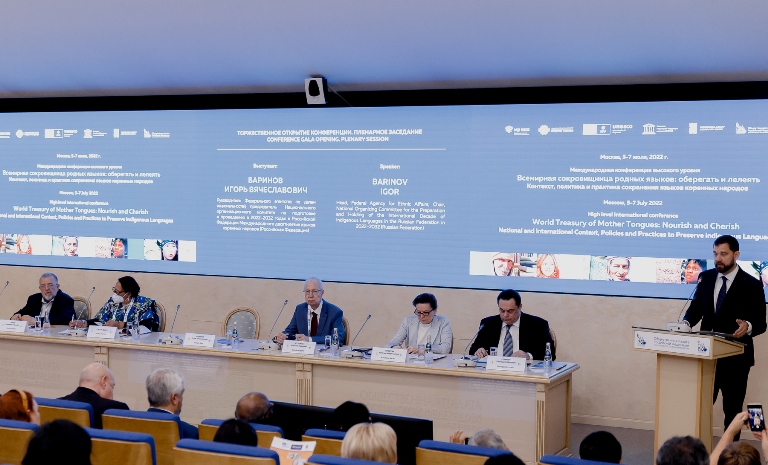
Conference gala opening (right to left): Igor BARINOV, Head, Federal Agency for Ethnic Affairs, Chair, National Organizing Committee for the Preparation and Holding in the Russian Federation of the International Decade of Indigenous Languages in 2022–2032; Gennady SEMIGIN, Chair, Committee for Ethnic Affairs, State Duma of the Federal Assembly of the Russian Federation; Natalia KOMAROVA, Governor of the Khanty-Mansi Autonomous Area – Ugra; Evgeny KUZMIN, Vice-Chair, Intergovernmental Council of the UNESCO Information for All Programme (IFAP), Ñhair, IFAP Working Group on Multilingualism & Russian IFAP Committee, President, Interregional Library Cooperation Centre, Member, National Organizing Committee for the Preparation and Holding in the Russian Federation of the International Decade of Indigenous Languages in 2022–2032; Dorothy GORDON, Chair, Intergovernmental Council, UNESCO Information for All Programme (IFAP); Chair, UNESCO/IFAO Working Group for Media and Information Literacy; Board Member, UNESCO Institute for Information Technologies in Education (Ghana); Vladimir ZORIN, Chair, Commission of the Civic Chamber of the Russian Federation on the Harmonization of Interethnic and Interreligious Relations
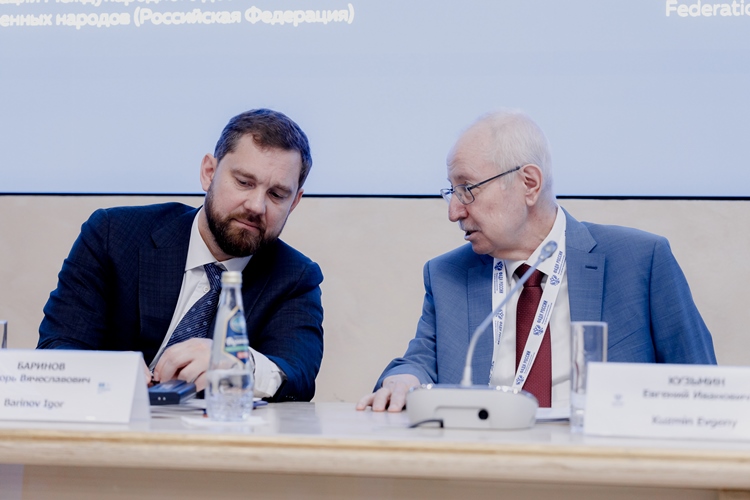
Igor BARINOV and Evgeny KUZMIN
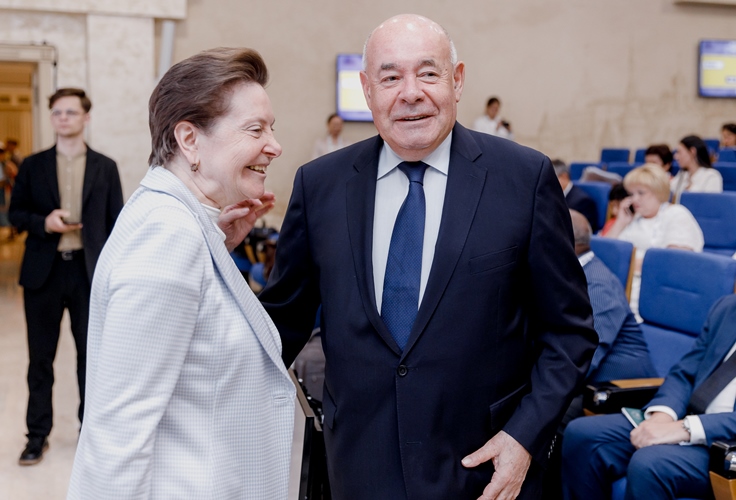
Mikhail SHVYDKOY, Special Representative of the President of the Russian Federation for International Cultural Cooperation, and Natalia KOMAROVA
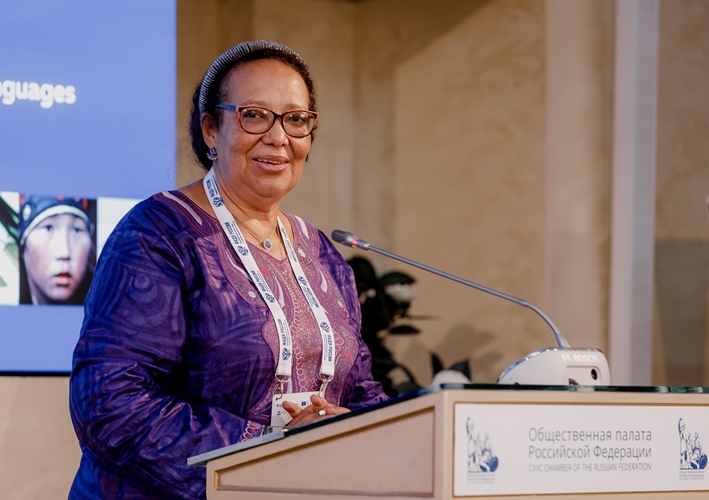
Dorothy GORDON (Ghana)
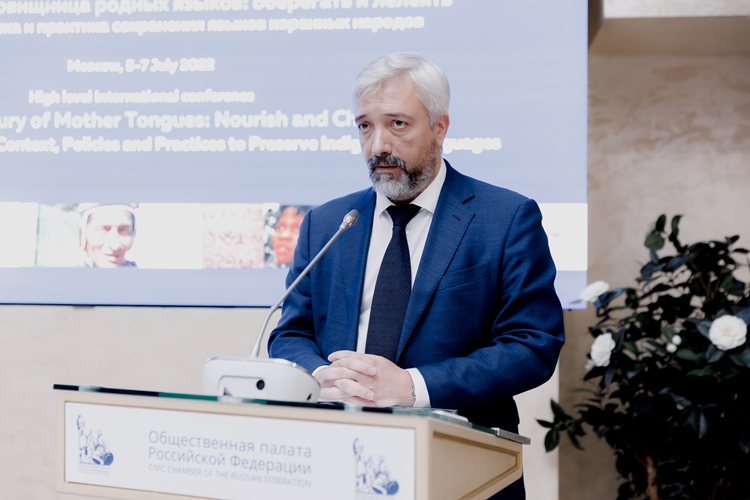
Evgeny PRIMAKOV, Head, Federal Agency for the Commonwealth of Independent States, Compatriots Living Abroad and International Humanitarian Cooperation (Rossotrudnichestvo)
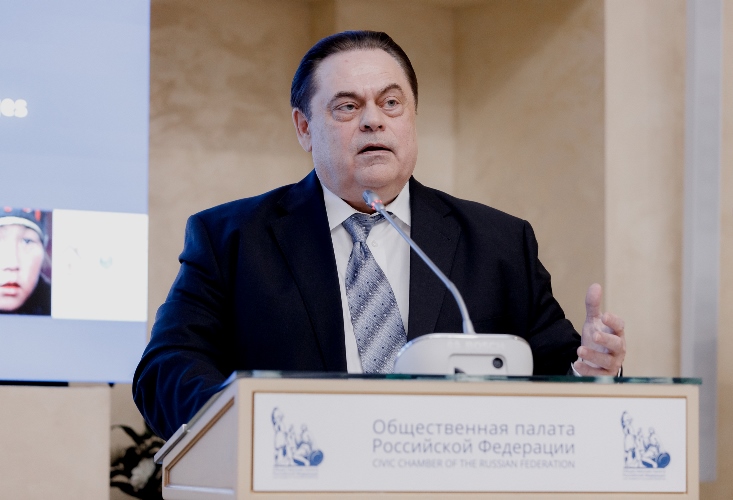
Gennady SEMIGIN
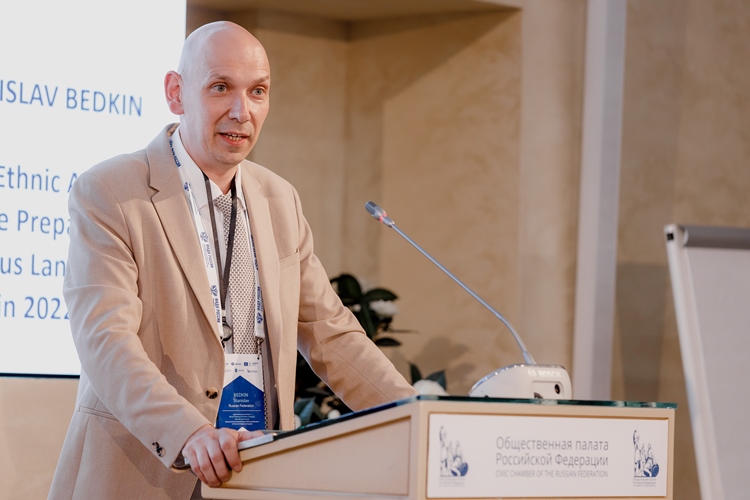
Stanislav BEDKIN, Deputy Head, Federal Agency for Ethnic Affairs; Deputy Chair, National Organizing Committee for the Preparation and Holding in the Russian Federation of the International Decade of Indigenous Languages in 2022–2032
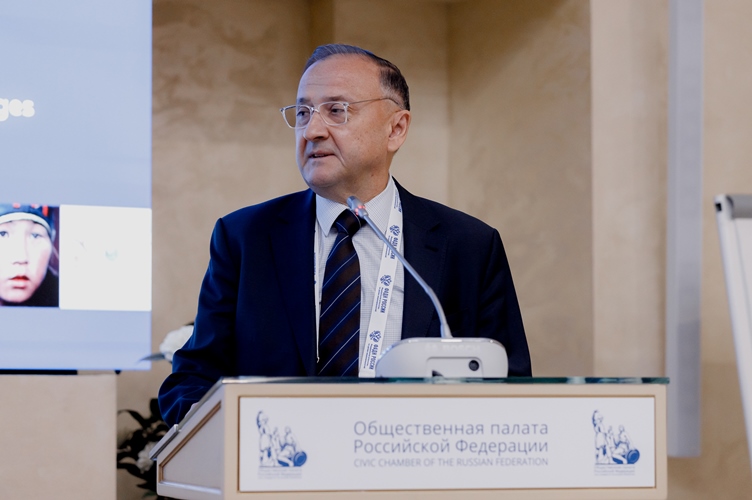
Rinat ALYAUTDINOV, Director, Department for Humanitarian Cooperation and Human Rights, Ministry of Foreign Affairs of the Russian Federation; Member, National Organizing Committee for the Preparation and Holding in the Russian Federation of the International Decade of Indigenous Languages in 2022–2032
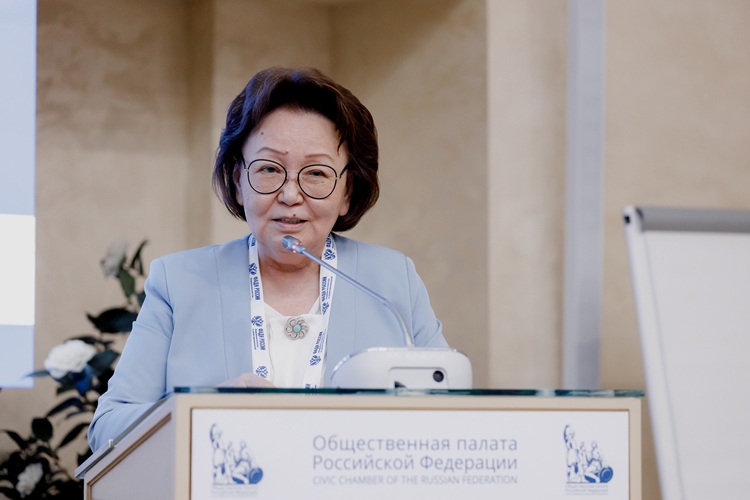
Evgenia MIKHAILOVA, President, Ammosov North-Eastern Federal University in Yakutsk; former Vice-President of the Republic of Sakha (Yakutia)
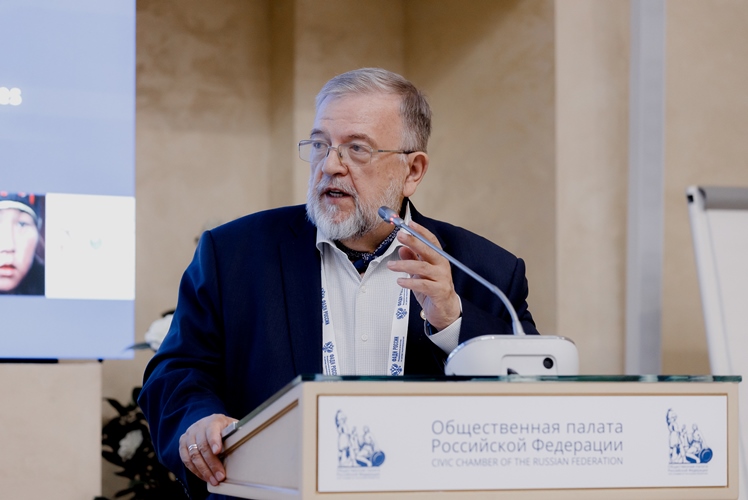
Vladimir ZORIN, Chair, Commission of the Civic Chamber of the Russian Federation on the Harmonization of Interethnic and Interreligious Relations
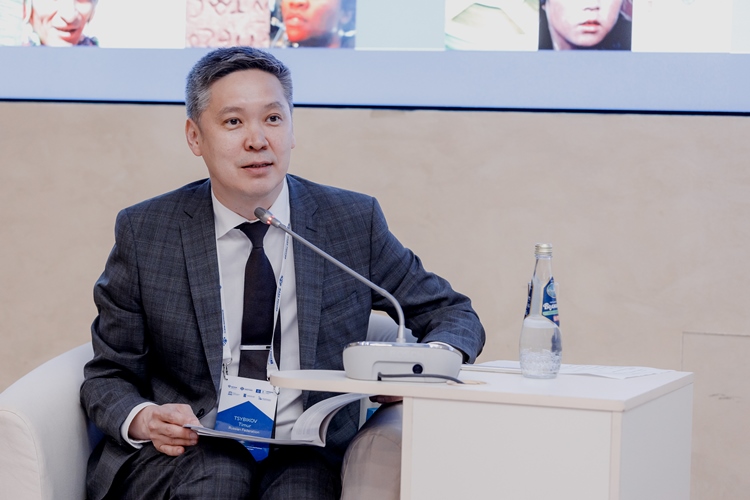
Timur TSYBIKOV, Head, Directorate of State Policy in the Field of Interethnic Relations, Federal Agency for Ethnic Affairs; Executive Secretary, National Organizing Committee for the Preparation and Holding in the Russian Federation of the International Decade of Indigenous Languages in 2022–2032; Adviser, Steering Committee, UNESCO Global Task Force for Making a Decade of Action for Indigenous Languages
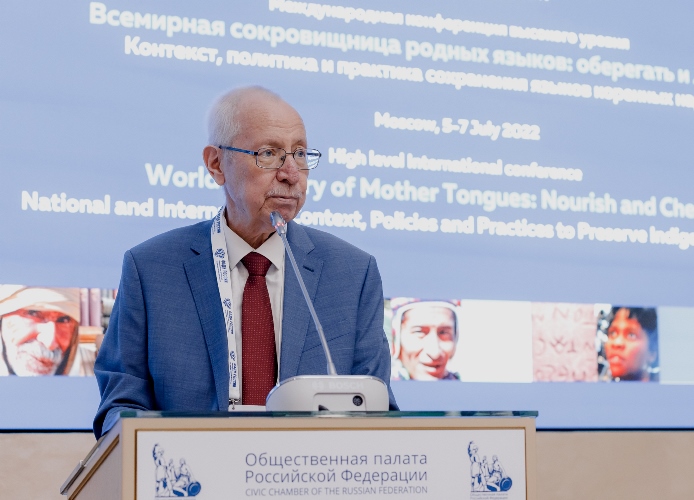
Evgeny KUZMIN
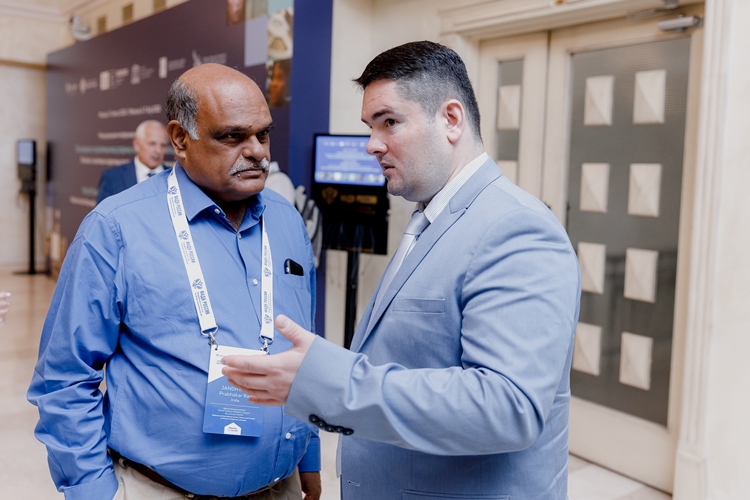
Prabhakar Rao JANDHYALA, Member of Bureau, Intergovernmental Council of the UNESCO Information for All Programme; Director, India Centre of Excellence for Information Ethics & Centre for Applied Linguistics and Translation Studies, University of Hyderabad (India), and Nikolai KHAUSTOV, Adviser, Department for Humanitarian Cooperation and Human Rights, Ministry of Foreign Affairs of the Russian Federation
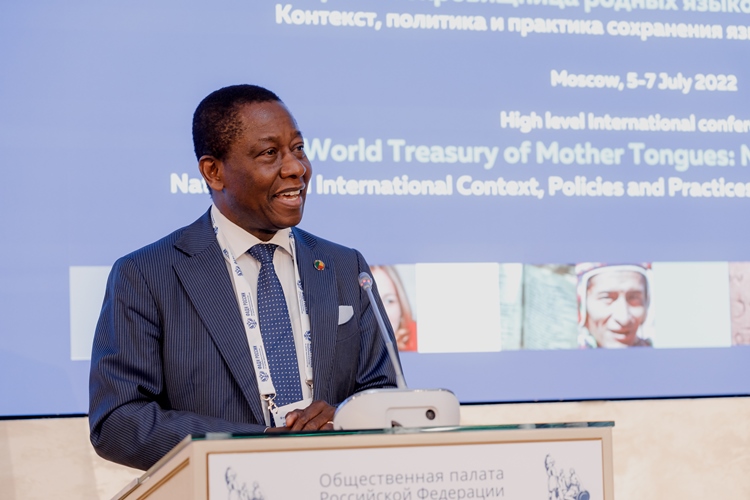
Anicet Gabriel KOTCHOFA, Professor, Lomonosov Moscow State University; High Commissioner & Deputy Secretary General, Eurasian Economic Cooperation Organization for International Cooperation (EEOC); Ex-Ambassador of the Republic of Benin to the Russian Federation; Director General, International Coordination Council of Educational Institutions Alumni (Benin)
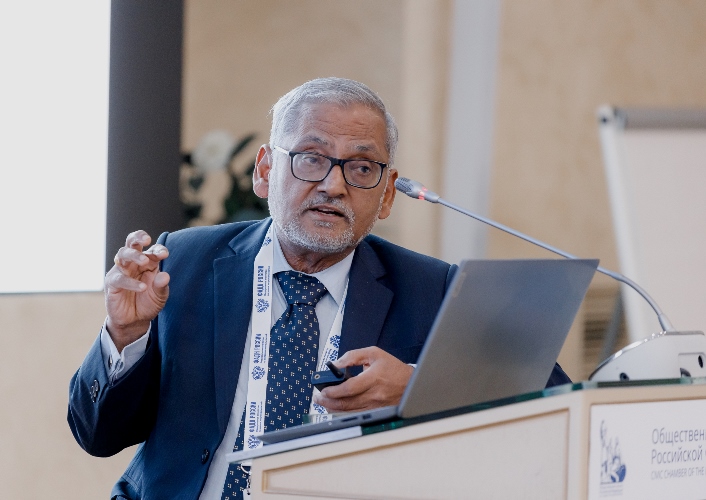
Siva Prasad RAMBHATLA, Honorary Professor, University of Hyderabad (India)
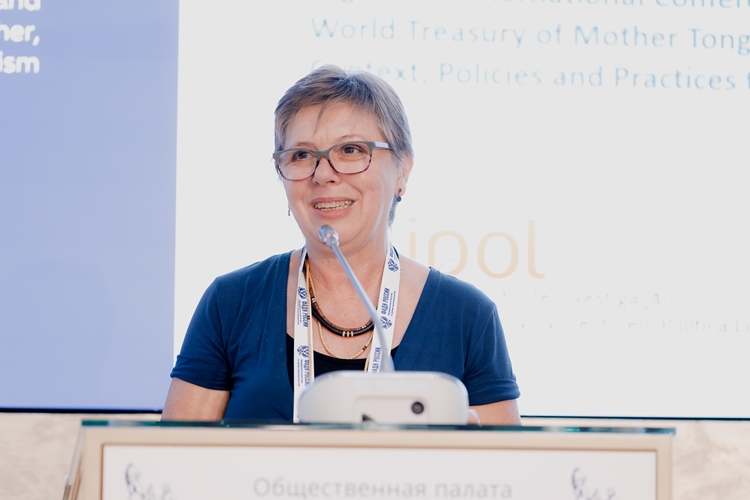
Rosângela MORELLO, Director General, IPOL Institute for Research and Development in Language Policy; Researcher, UNESCO Chair Language Policies for Multilingualism (Brazil)
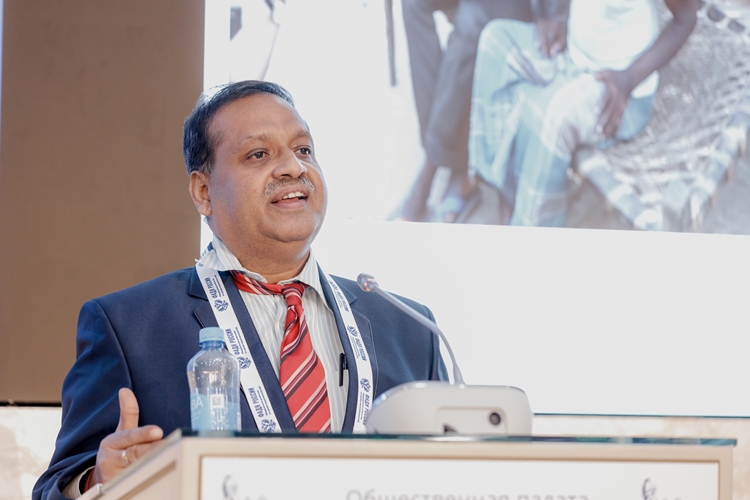
Niladri Sekhar DASH, Professor and Head, Linguistic Research Unit, Indian Statistical Institute (India)
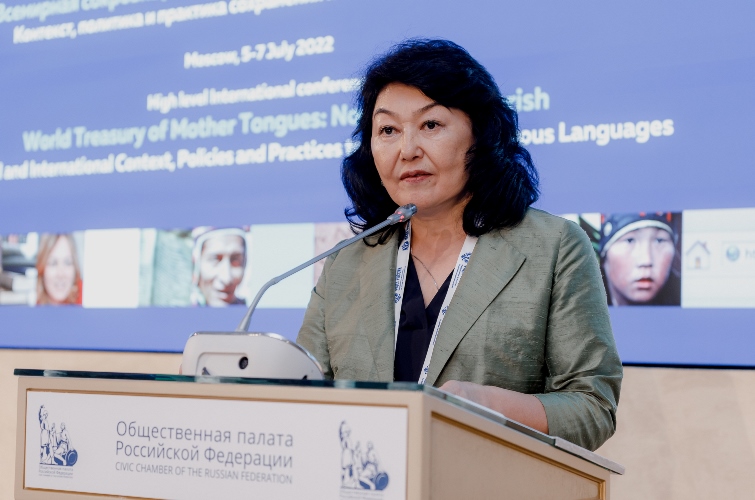
Zhyldyz BAKASHOVA, Director, Kyrgyz National Historical Museum; former Vice Prime Minister of the Kyrgyz Republic; former Director, National Library of the Kyrgyz Republic
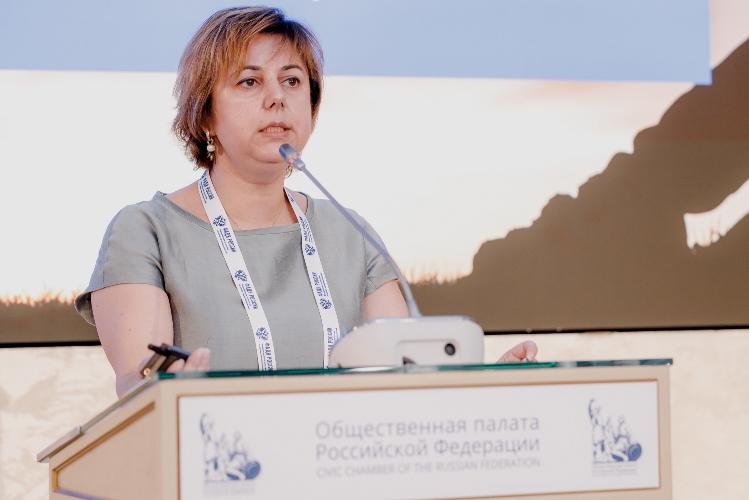
Natalia TRUKHANOVSKAYA, Acting Rector, Pushkin State Russian Language Institute (Russian Federation)
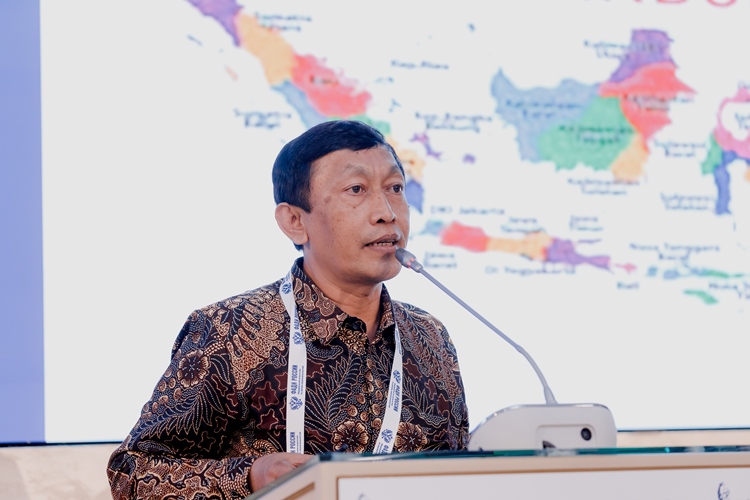
Gatut SUSANTO, Director of BIPA Programme, Universitas Negeri Malang (Indonesia)
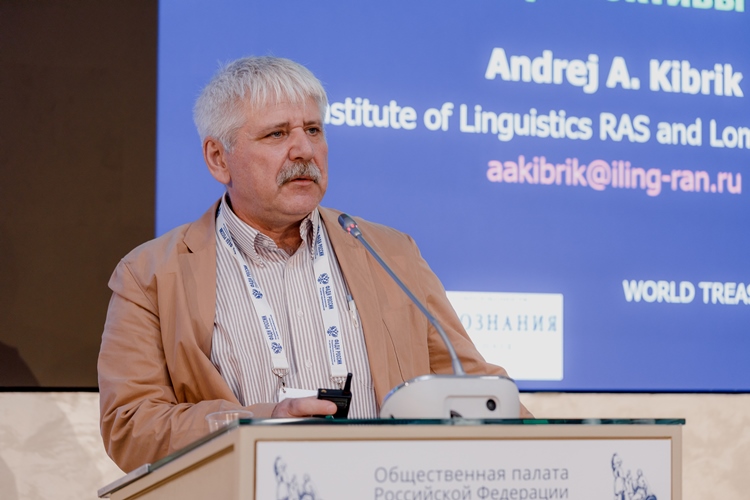
Andrey KIBRIK, Director, Institute of Linguistics, Russian Academy of Sciences; Professor, Lomonosov Moscow State University (Russian Federation)
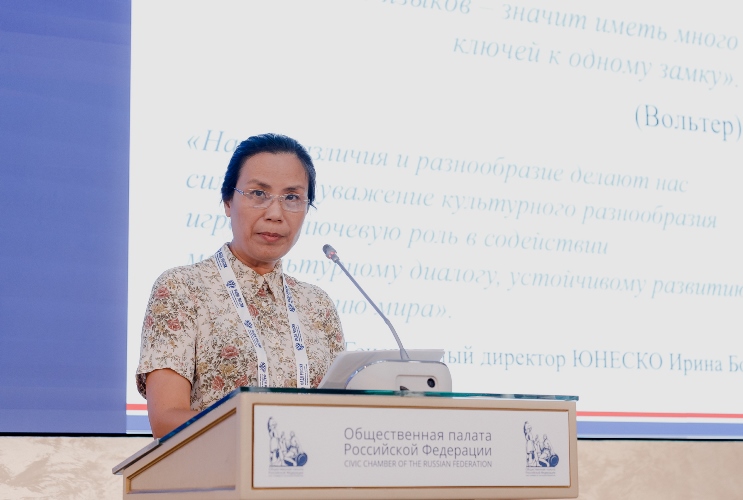
Thi Thu Dat NGUYEN, Director, Hanoi Branch, Pushkin State Russian Language Institute, International Cooperation Directorate, Ministry of Education and Training of the Socialist Republic of Vietnam (Vietnam)
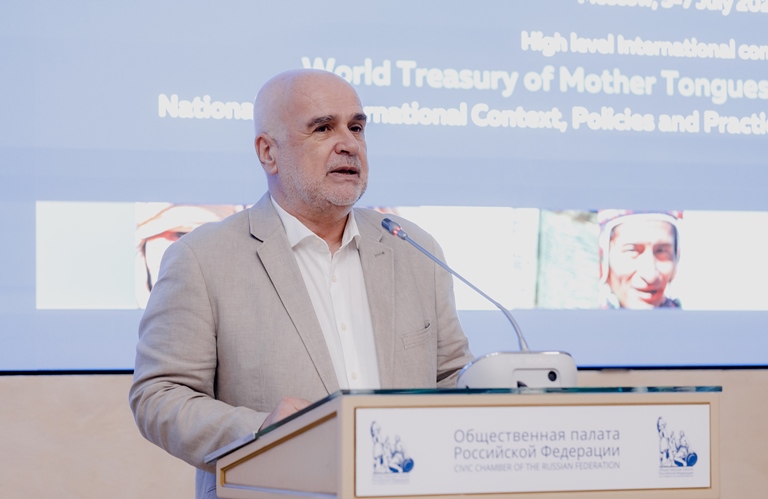
Alexander RUDYAKOV, Rector, Crimean Republican Institute of Postgraduate Pedagogical Education; Head, Department of Russian, Slavic and General Linguistics, Institute of Philology, Vernadsky Crimean Federal University (Russian Federation)
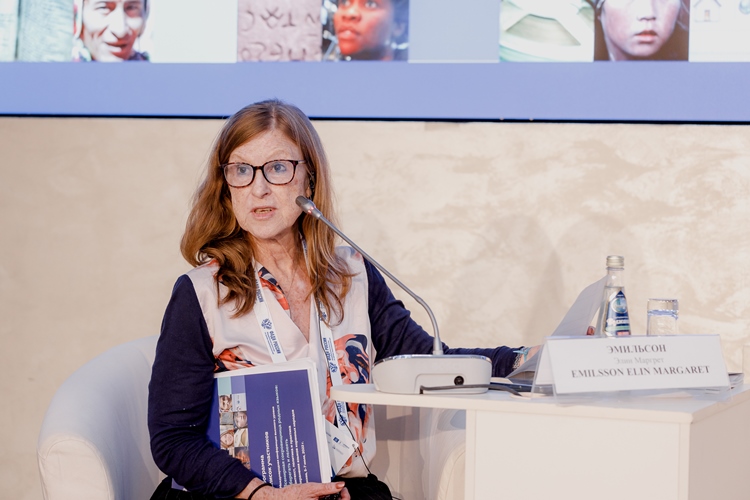
Elin Margret EMILSSON, Professor, Universidad Pedagógica Nacional; Member, Executive Committee, UNESCO Chair Language Policy for Multilingualism; Professor, Universidad Nacional Autónoma de México
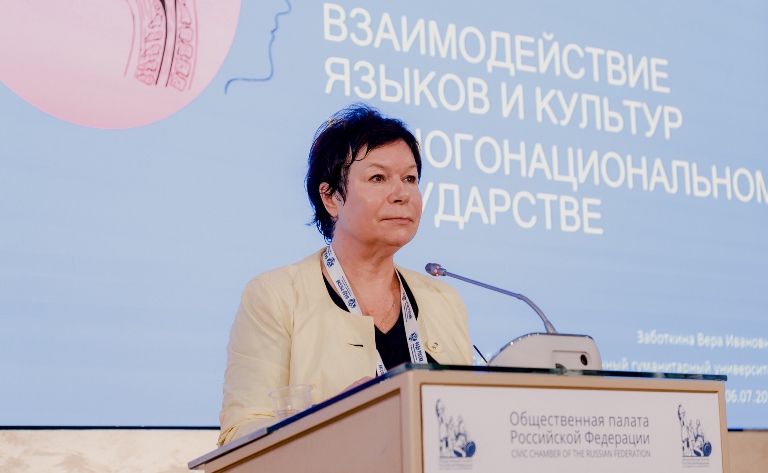
Vera ZABOTKINA, Adviser to the Rectorate for International Affairs, Russian State University for the Humanities (Russian Federation)
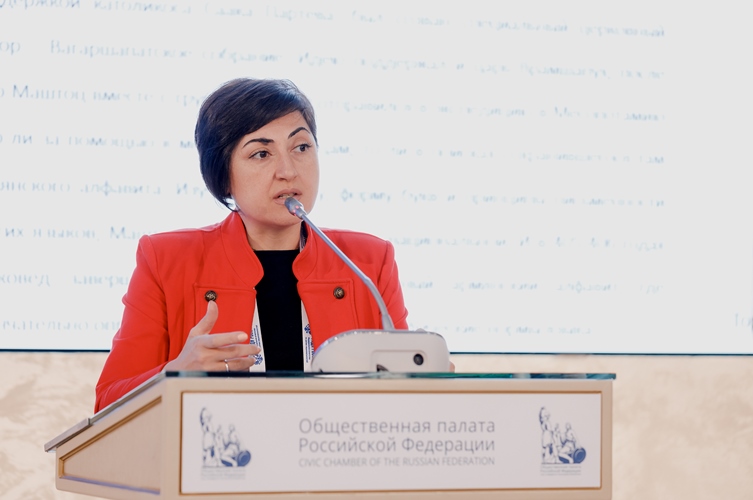
Anna CHULYAN, Director, National Library of Armenia (Armenia)
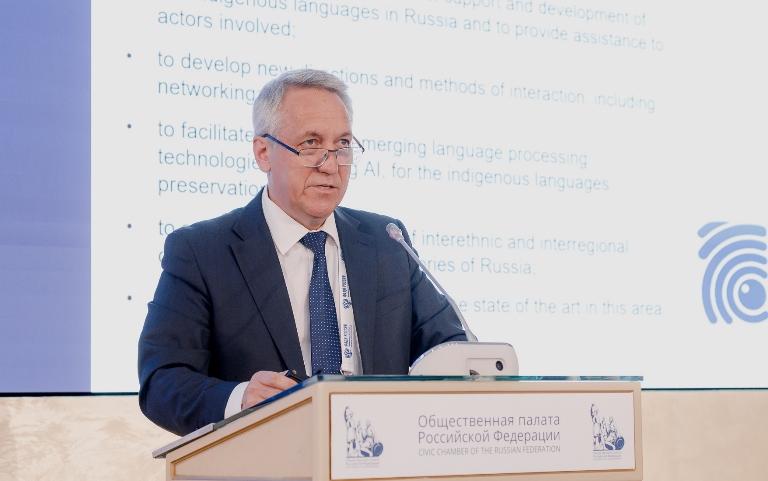
Sergey BAKEYKIN, Vice Chair, Russian Committee of the UNESCO Information for All Programme; Executive Director, Interregional Library Cooperation Centre (Russian Federation)
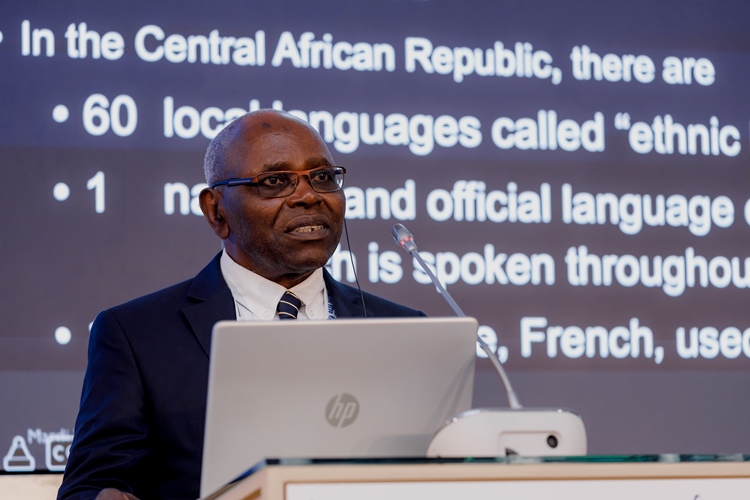
Marcel DIKI-KIDIRI, Academician (Member of the Academicians’ Assembly), African Academy of Languages (ACALAN) (Central African Republic/France)
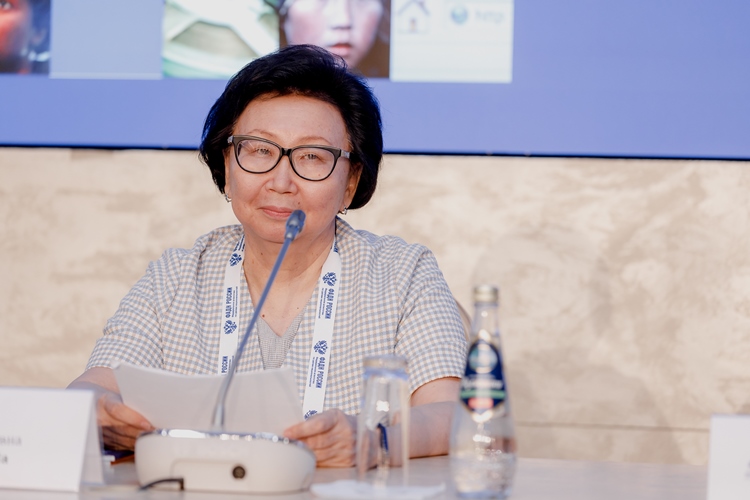
Nadezhda ZAIKOVA, Rector, Bosikov Higher School of Music of the Republic of Sakha (Yakutia); former Deputy Minister of Culture and Spiritual Development of the Republic of Sakha; former Vice-Rector, Ammosov North-Eastern Federal University (Russian Federation)
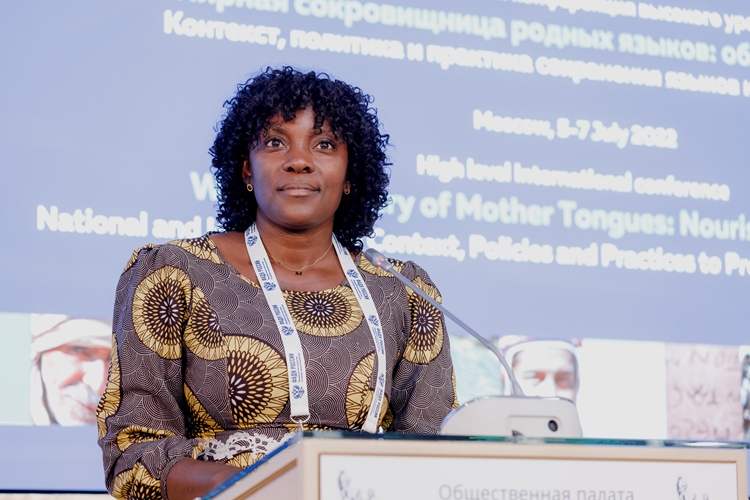
Marie Madeleine ENGANEMBEN BEKEMEN, Diplomat, Senior Staff in Charge of Monitoring Cooperation between Cameroon and the Countries of Central and Eastern Europe, Ministry of External Relations of Cameroon (Cameroon)
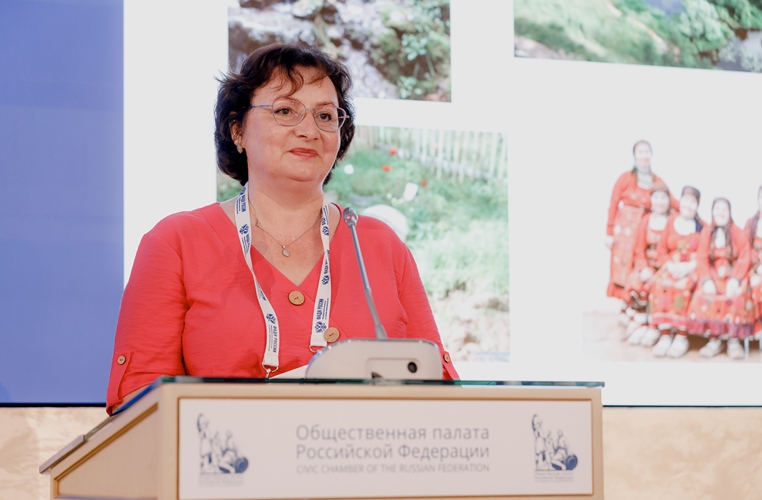
Tatyana TENSINA, Director, National Library of the Udmurt Republic (Russian Federation)
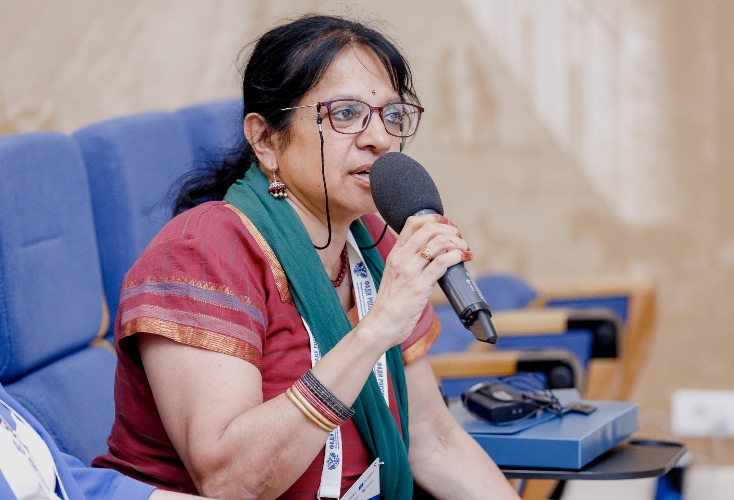
Anuradha KANNIGANTI, Researcher, International Foundation for Human Development, Hyderabad (India)
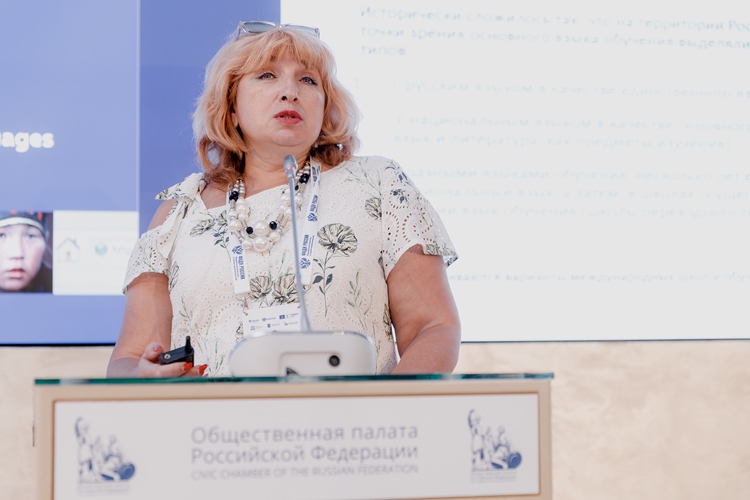
Elizaveta KHAMRAEVA, Head, Department of Linguodidactics and Bilingualism, Moscow Pedagogical State University; Research Director, Interuniversity Centre for Bilingual and Multicultural Education, Herzen Russian State Pedagogical University (Russian Federation)
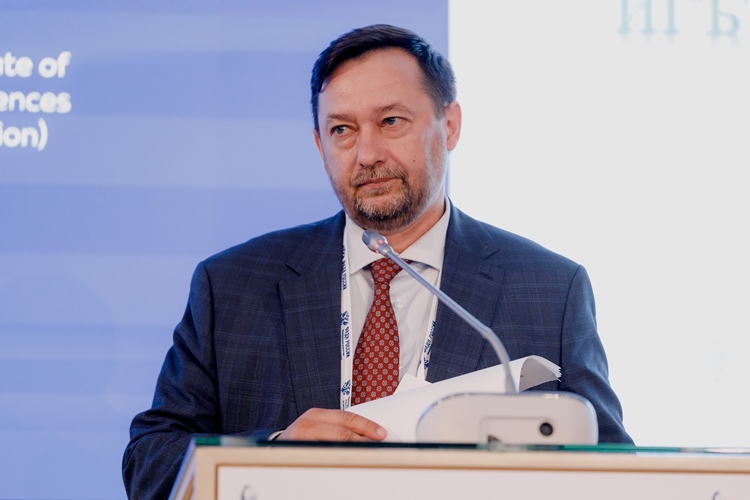
Oleg KHISAMOV, Deputy Director for Research, Ibragimov Institute of Language, Literature and Art, Academy of Sciences of the Republic of Tatarstan
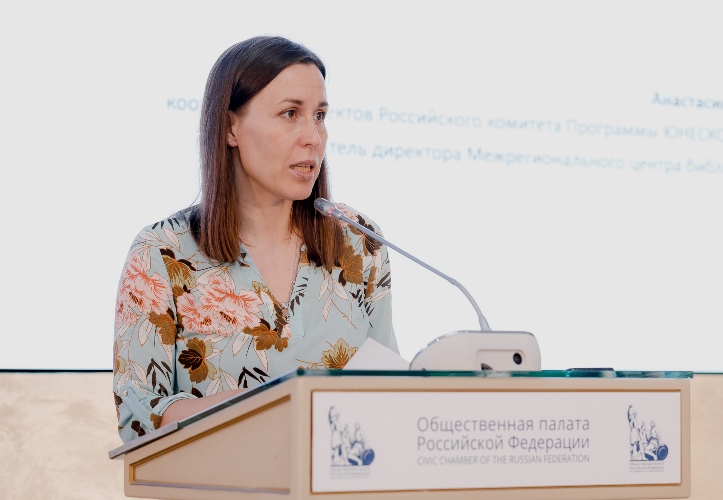
Anastasia PARSHAKOVA, Project Coordinator, Russian Committee of the UNESCO Information for All Programme; Deputy Director, Interregional Library Cooperation Centre (Russian Federation)
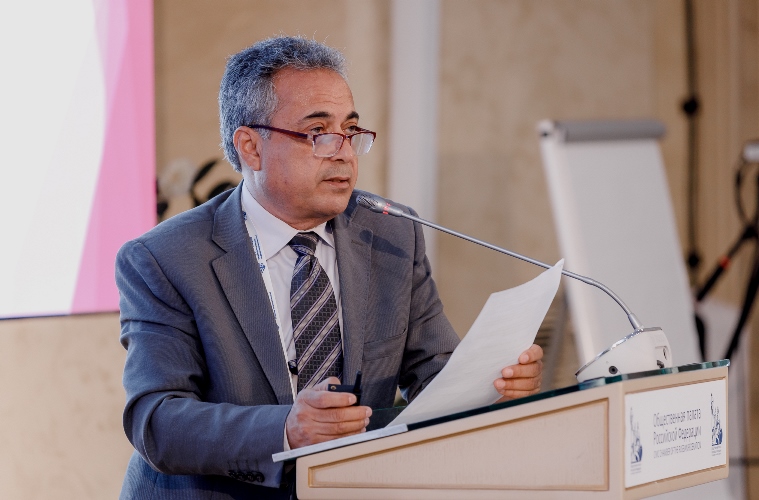
Radwan AL-RAKHAL, Interpreter, Energy Ltd., Masa Oil Services Ltd.; former Director, Department of the Russian Language and Department of Vocational Education, Syrian Ministry of Education (Syria)
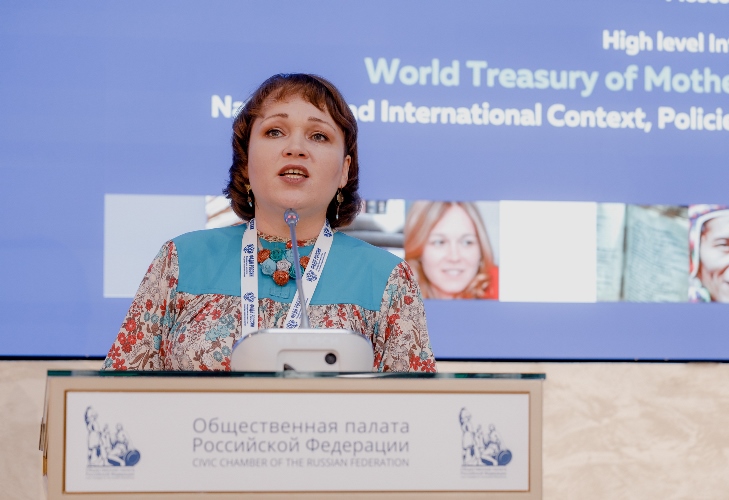
Tatyana ISHMATOVA, Chair, Standing Committee for Science, Education, Culture, Tourism and National Policy, State Council of the Udmurt Republic; President, All-Udmurt Association “Udmurt Kenesh” (Russian Federation)
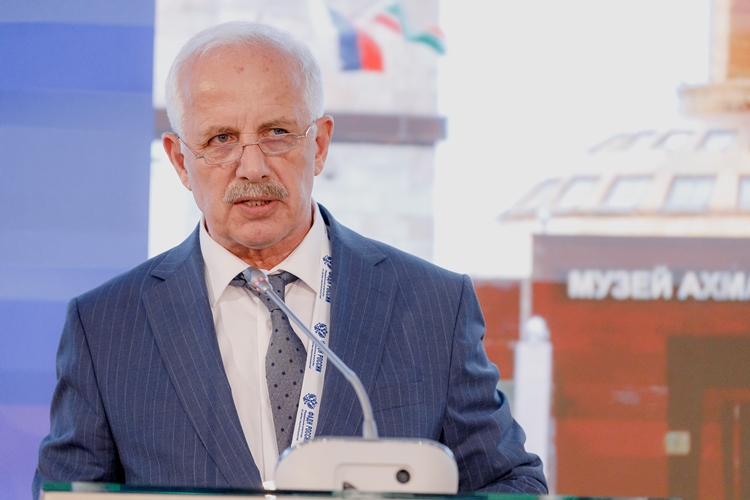
Musa OVKHADOV, Professor, Kadyrov Chechen State University (Russian Federation)
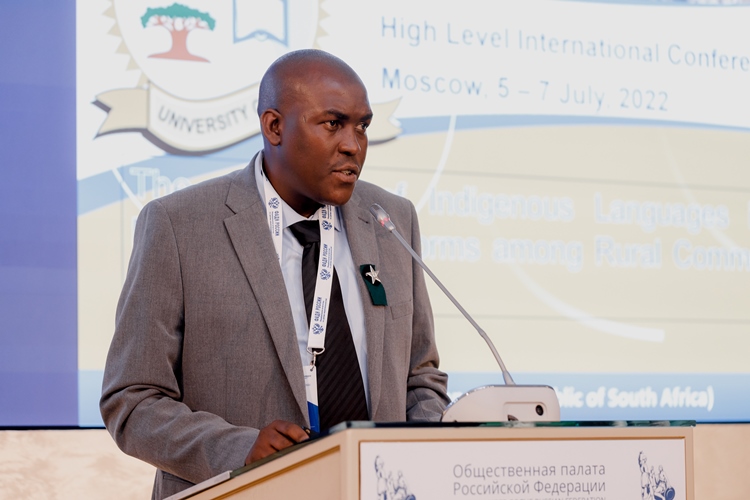
Edgar MALATJI, Senior Lecturer, University of Limpopo (South African Republic)
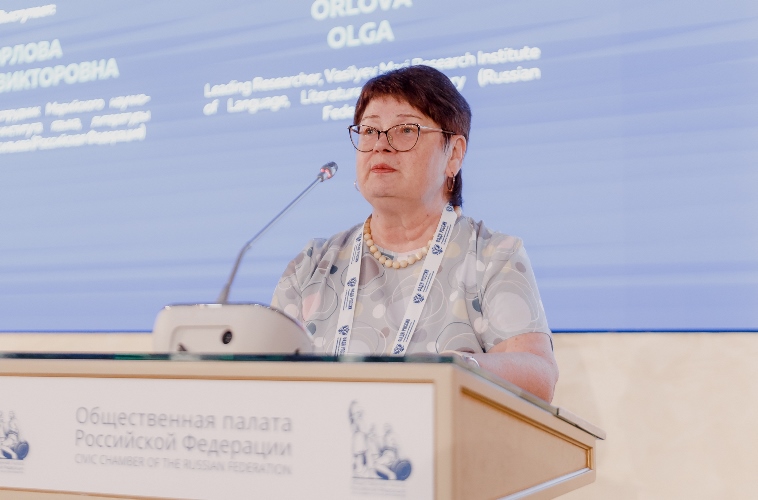
Olga ORLOVA, Leading Researcher, Vasilyev Mari Research Institute of Language, Literature and History (Russian Federation)
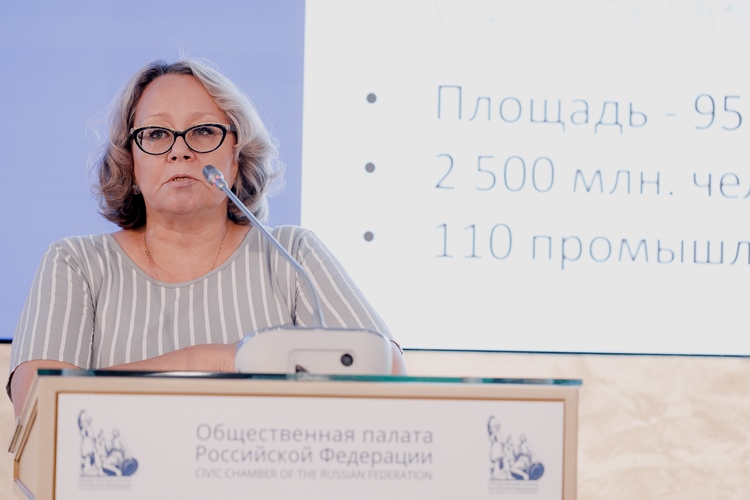
Elena TCHAYKOVSKAYA, Associate Professor, Department of the Russian Language and Literature, Kemerovo State University; Head, Centre for Languages and Cultures of the Peoples of Siberia (Russian Federation)
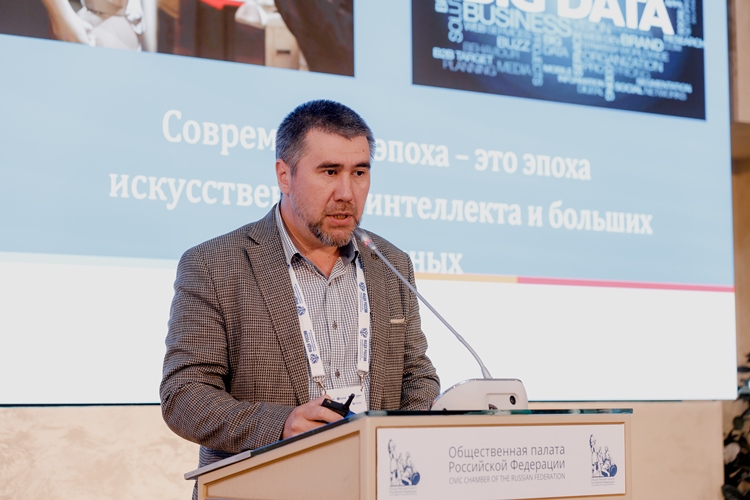
Bulat KHAKIMOV, Leading Researcher, Institute of Applied Semiotics, Academy of Sciences of the Republic of Tatarstan; Associate Professor, Kazan Federal University (Russian Federation)
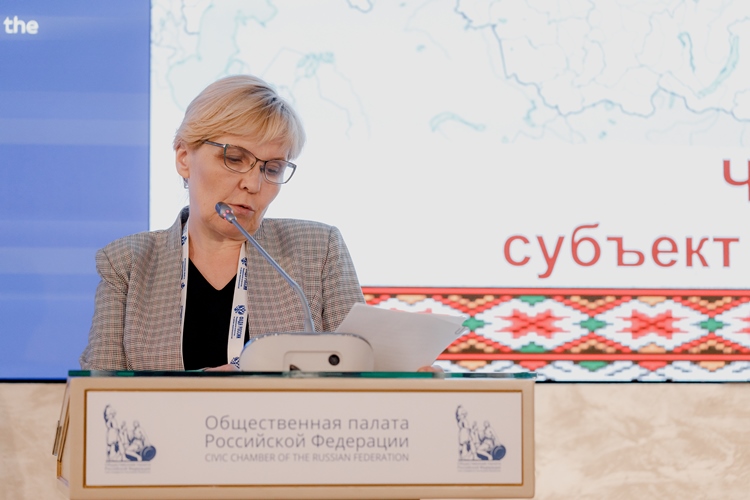
Alevtina DOLGOVA, Leading Researcher, Chuvash State Institute for the Humanities (Russian Federation)
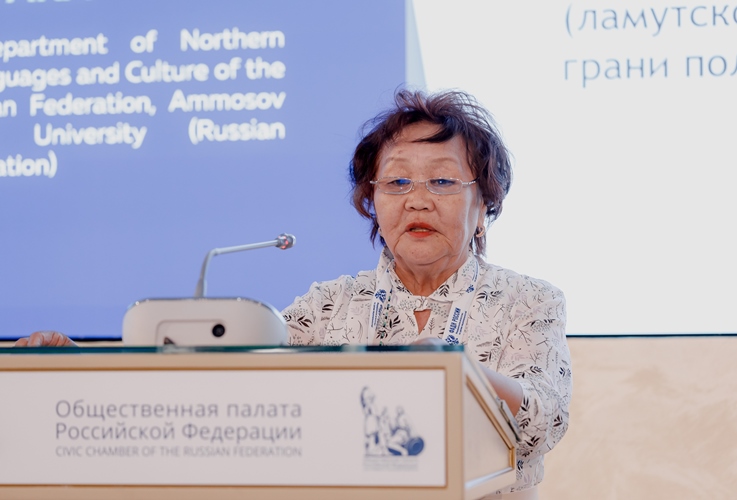
Varvara BELOLYUBSKAYA, Associate Professor, Department of Northern Philology, Institute of Languages and Culture of the North-East of the Russian Federation, Ammosov North-Eastern Federal University (Russian Federation)
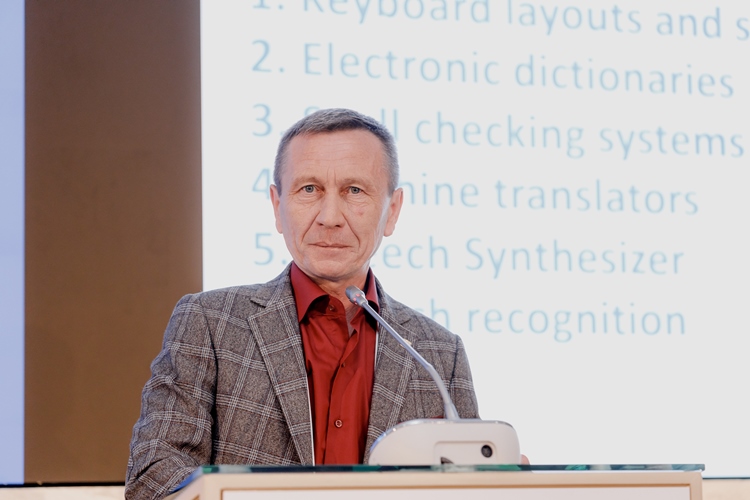
Andrey CHEMYSHEV, Researcher, Vasilyev Mari Research Institute of Language, Literature and History (Russian Federation)
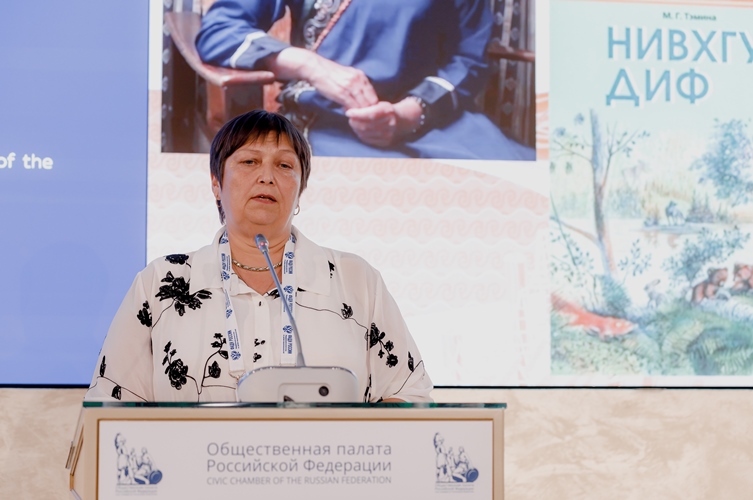
Olga ROZHNOVA, Director, Nogliki Centralized Library System of the Sakhalin Region (Russian Federation)
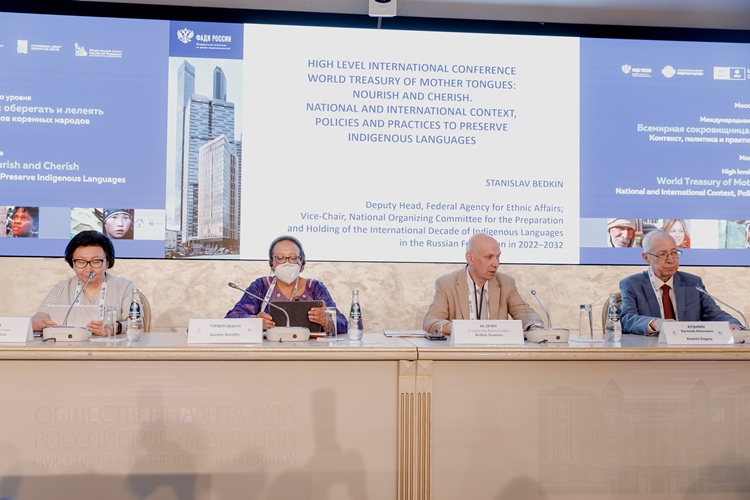
Closing plenary
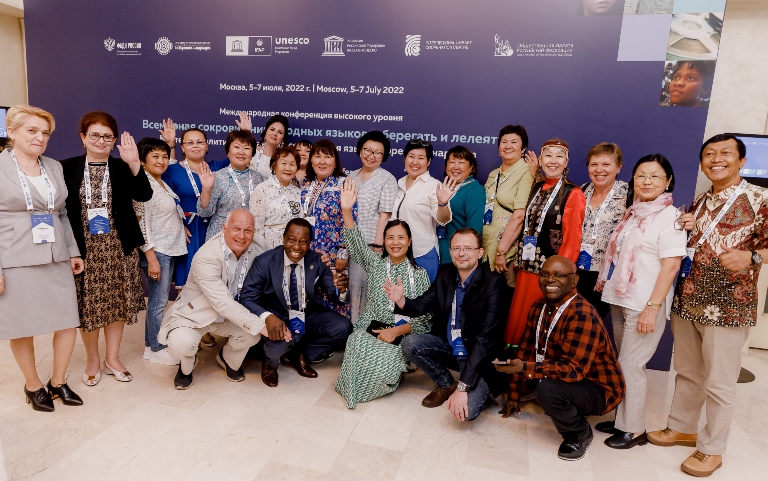
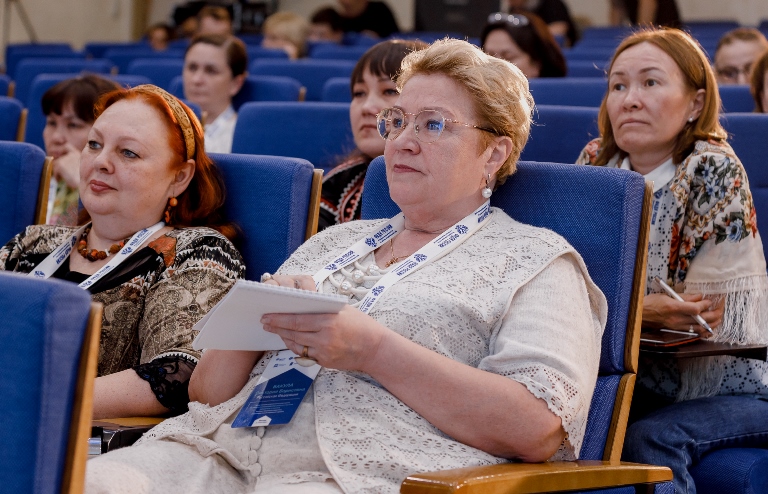
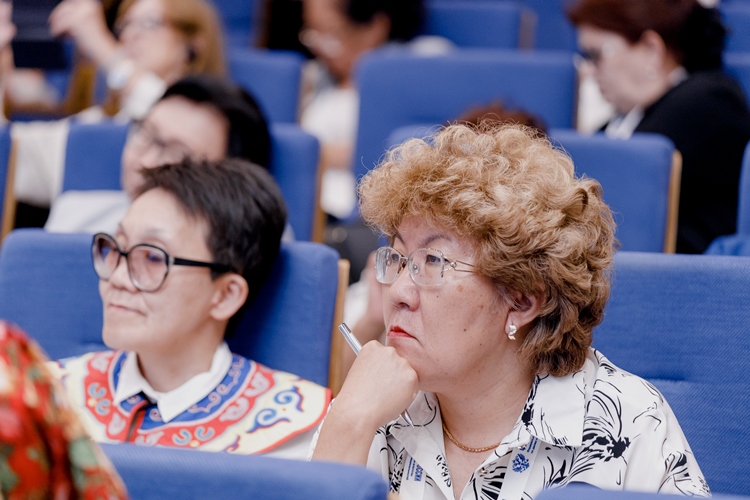
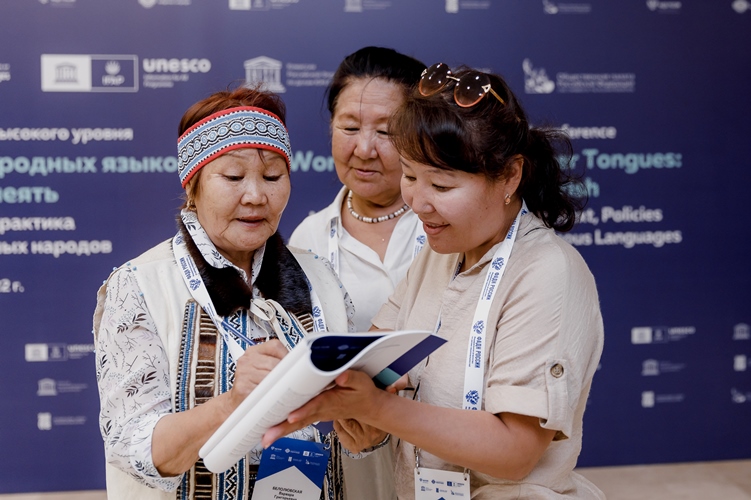
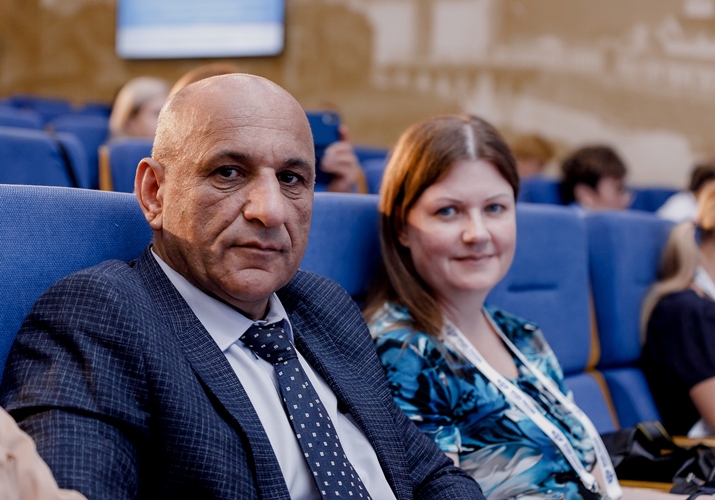
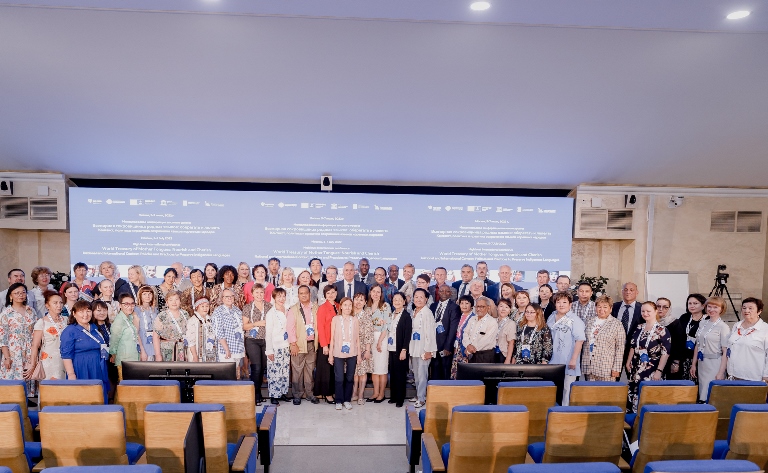
Conference participants
 |
|

|



